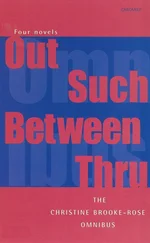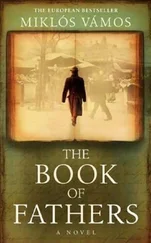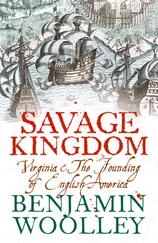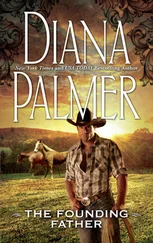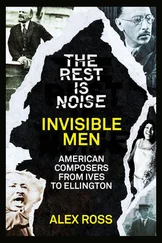P. Rose - The Founding Fathers of American Intelligence
Здесь есть возможность читать онлайн «P. Rose - The Founding Fathers of American Intelligence» весь текст электронной книги совершенно бесплатно (целиком полную версию без сокращений). В некоторых случаях можно слушать аудио, скачать через торрент в формате fb2 и присутствует краткое содержание. Жанр: История, на английском языке. Описание произведения, (предисловие) а так же отзывы посетителей доступны на портале библиотеки ЛибКат.
- Название:The Founding Fathers of American Intelligence
- Автор:
- Жанр:
- Год:неизвестен
- ISBN:нет данных
- Рейтинг книги:5 / 5. Голосов: 1
-
Избранное:Добавить в избранное
- Отзывы:
-
Ваша оценка:
- 100
- 1
- 2
- 3
- 4
- 5
The Founding Fathers of American Intelligence: краткое содержание, описание и аннотация
Предлагаем к чтению аннотацию, описание, краткое содержание или предисловие (зависит от того, что написал сам автор книги «The Founding Fathers of American Intelligence»). Если вы не нашли необходимую информацию о книге — напишите в комментариях, мы постараемся отыскать её.
The Founding Fathers of American Intelligence — читать онлайн бесплатно полную книгу (весь текст) целиком
Ниже представлен текст книги, разбитый по страницам. Система сохранения места последней прочитанной страницы, позволяет с удобством читать онлайн бесплатно книгу «The Founding Fathers of American Intelligence», без необходимости каждый раз заново искать на чём Вы остановились. Поставьте закладку, и сможете в любой момент перейти на страницу, на которой закончили чтение.
Интервал:
Закладка:
Crosby's missions were highly dangerous. He was in constant danger of being killed by the Tories if unmasked as an American agent, or harmed by unwitting Americans when captured along with Tories. The geographical area in which he operated along the Hudson River, north of New York City, was a small region, with residents clustered in several villages. The physical and social proximity among the populace meant that Crosby became widely known in the region rather quickly. As a result, his value as a counter-intelligence agent diminished with each mission.
In October 1777, Jay dispatched Crosby on a mission to the town of Marlboro, located on the western bank of the Hudson River. This mission typified Crosby's operational approach and the dangers he constantly faced. He posed as John Smith, a shoemaker and pro-British loyalist. Upon arriving in Marlboro, he sought out a tavern known for its loyalist patrons and began getting acquainted with the local Tories.
Crosby's skillful performance as a British sympathizer impressed some influential local people. As "Smith", he was welcomed as a recruit in a military unit being formed among local Tories under the direction of a British officer from New York City. The company was formed in a week's time. Crosby soon sent the following message to Jay:
I hasten this express to request you to order Captain Townsend's company of Rangers to repair immediately to the barn, situated on the west side of Butter-Hill, and there to secrete themselves until we arrive, which will be tomorrow evening, probably about eleven o'clock; where, with about thirty Tories, they may find,
Your obedient servant, John Smith [2]The trap was sprung by Townsend's Rangers as Crosby had suggested. Crosby attempted to hide in a nearby haystack to avoid capture and to be able to explain his future freedom. But the American Rangers probed the haystack with their bayonets, and he hastily gave himself up. Townsend, who was unaware of Crosby's true loyalty, took him along with the other Tories and decided to lock him in a secure room in Jay's residence. Jay was not home, but his maid recognized Crosby and managed to give the guards at the residence some drugged brandy so that he could flee. The next day, his "escape" was made known to the other prisoners, and Crosby was off to join yet another Tory group.
In addition to his counterintelligence work, Jay played a critical role in establishing the right of the Executive Branch to conduct intelligence activities in secrecy. During the debates surrounding the creation of the United States Constitution, Jay wrote in Federalist Paper No. 64:
There are cases where the most useful intelligence may be obtained, if the persons possessing it can be relieved from apprehensions of discovery. Those apprehensions will operate on those persons whether they are actuated by mercenary or friendly motives, and there doubtless are many of both descriptions, who would rely on the secrecy of the President, but who would not confide in that of the Senate, and still less in that of a large popular assembly. The convention has done well therefore in so disposing of the power of making treaties, that although the president must in forming them act by the advice and consent of the Senate, yet he will be able to manage the business of intelligence in such a manner as prudence may suggest.
Benjamin Franklin: Master Of Covert Action
Franklin used his intellect and humor to win friendships and build French support for the American independence struggle.
Benjamin Franklin was perhaps the most intellectual and worldly member of America's Revolutionary War leadership. Long before the war started, he was recognized in the colonies and Europe as a scientist of distinction, a seasoned diplomat, a world-class thinker, and a talented public servant. He subsequently used all these skills as an agent of influence, propagandist, manager of covert French aid to the American Revolutionaries, and director of American paramilitary activities against the British.
When Franklin became the head of the quasi-diplomatic American Commission in Paris in December 1776, he began a relationship with the French Government that involved much more than diplomatic work. His real mission was to obtain French agreement to a military alliance against Britain. In pursuing this objective, he burnished his public image as an American with virtues that were appreciated and respected by the French populace, while simultaneously mounting a carefully planned, low-profile campaign to gain the support of key French political and business leaders.
In his public role as America's envoy, Franklin took pains to display the traits of honesty, altruism, and common sense that were reflected in his "Poor Richard's Almanac" and for which he was widely admired. His clothes and mannerisms reinforced his image as a friendly, humble, and industrious American—a stark contrast to the image of the British in the eyes of many if not most French people at that time.
In his private dealings with influential French individuals, Franklin was charming and subtle in his lobbying for the American cause. He used his intellect and humor to win friendships and build support within the French Government for the American independence struggle. Franklin was skilled at manipulating official French perceptions of America. On numerous occasions he was able to convince the French authories not to reduce secret aid or block American privateer ships from using French ports in the face of British protests and threats conveyed by London's Minister in Paris.
A major example of Franklin's ability to convince the French Government that its own interests coincided with American objectives occurred during the winter of 1777-78. America had won a strategic victory in the Battle of Saratoga, and Britain was expressing interest in some form of peace settlement with its colonies. French leaders, while impressed by the defeat of a sizable British force, remained hesitant to enter a formal military alliance with America. Spain, for its part, was willing to provide secret assistance to the Americans through France, but it was not prepared to join the French in an anti-British alliance.
At this critical time, Franklin orchestrated meetings between the American Commissioners and British envoys, fueling French fears that an Anglo-American reconciliation might occur. Franklin skillfully flirted with the British, meeting privately with one of their representatives and speaking encouragingly with others about reconciliation. He informed the French authorities about these meetings, but he gave them only carefully selected portions of the Anglo-American discussions. Based on Franklin's "perception management", which was aimed at convincing the French leadership that he was seriously considering the British peace proposals, the French Royal Council decided on 7 January 1778 to negotiate an offensive and defensive alliance, as well as a treaty of commerce and amity, with America.
Franklin's best-known efforts as a propagandist focused on generating dissatisfaction among mercenaries from what is now Germany who were serving with the British forces in America, and on exposing British human rights violations committed against Americans. In 1777, he concocted a letter, supposedly written by a Prussian Prince to the commander of the Prince's mercenary troops serving with the British forces in America. The letter questioned casualty figures provided by the British Government to the Prince. According to the letter, the Prince believed that the actual figures were higher and that he was being cheated of payments due him for dead and wounded soldiers.
The contrived letter also advised the commander to let his wounded soldiers die because the British would pay more for a death than for a wounded soldier. Wounded soldiers, the letter concluded, were of no use to the Prince; they were merely "cripples", unable to serve. The letter was widely circulated in Europe and among Prussian troops in the colonies, and was credited with causing numerous desertions. It also prompted protests within Britain against the payment of "blood money" to foreigners who "sold" their subjects to the British Government.
Читать дальшеИнтервал:
Закладка:
Похожие книги на «The Founding Fathers of American Intelligence»
Представляем Вашему вниманию похожие книги на «The Founding Fathers of American Intelligence» списком для выбора. Мы отобрали схожую по названию и смыслу литературу в надежде предоставить читателям больше вариантов отыскать новые, интересные, ещё непрочитанные произведения.
Обсуждение, отзывы о книге «The Founding Fathers of American Intelligence» и просто собственные мнения читателей. Оставьте ваши комментарии, напишите, что Вы думаете о произведении, его смысле или главных героях. Укажите что конкретно понравилось, а что нет, и почему Вы так считаете.

